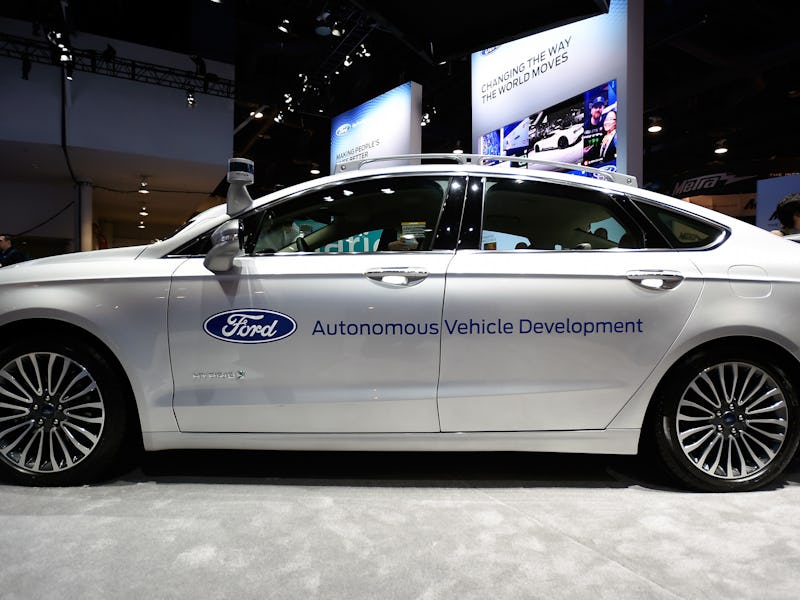Ford is Going to Spend $1 Billion on Autonomous Car Technology

Ford just announced that it is spending $1 billion on artificial intelligence to achieve its ambitious goal of putting self-driving cars into production by 2021.
The money will be spent over the next five years on Argo A.I., a Pittsburgh-based start-up, to develop the autonomous car, but not just any autonomous car: Ford wants to reach level 4 autonomy in less than five years.
Ford CEO Mark Fields announced the self-driving goal back in September, but until now it wasn’t quite clear exactly how it was going to achieve it. The investment in Argo A.I. — founded by former Google and Uber autonomous car experts at the end of 2016 — seems to be how Ford plans to get it done. It’s not a total acquisition by Ford though: Argo A.I. is going to be able to sell its software to competitors in the future, Argo A.I. made clear.
Why Ford picked Argo A.I. isn’t immediately clear, but the money speaks volumes about Ford’s intentions.
A Ford representative explained the company’s reasoning like this to Inverse: “We share a vision with the founders of Argo A.I. for how to make fully autonomous vehicles successful, and we are thrilled to be working together.” Exactly what this vision means isn’t laid out yet by either company.
Argo A.I. is a startup working on artificial intelligence for autonomous driving that was created in late 2016 by two founders. Bryan Salesky was the director of hardware development for Google’s self-driving car team and Peter Rander helped Uber develop its initial self-driving car. Both are robotics experts specializing in autonomous systems, and according to the press statement from Ford, it’s this expertise that attracted the buy.
The Ford Fusion hybrid autonomous research vehicle on the Dearborn, Michigan Ford campus.
Argo A.I. has been brought on-board to work primarily on Ford’s virtual driver system.” The virtual driver system is what Ford is calling its autonomous driving software, that’s based on machine learning techniques to build an A.I. It sounds like Argo will be collaborating with the current virtual driver team to integrate the system with the autonomous sensor hardware and push the software forward.
In an interesting twist, in a Medium post by the Argo A.I. team, they include that although Ford is the majority investor, the company is still retaining ownership of its tech. They write:
Our initial focus will be to support Ford’s autonomous vehicle development and production, but in the future, we may license our technology to other companies and sectors looking for self-driving capability.
This is pretty unusual. Salesky told Recode that Ford agreed to this as a way to attract employees to the very young startup with promises of equity. For all intents and purposes though, it looks like Argo A.I. is essentially Ford’s new autonomous testing development lab, albeit one that can decide to potentially sell its software to Ford’s competitors eventually.
A number of A.I. start-ups have sprouted up in recent months. Ford’s major American competitor, General Motors, bought Cruise Automation in March of last year, and showed the fruits of its labor with a video of a self-driving Chevrolet Bolt in January. Not exactly a start-up, Waymo spun out of Google’s X division and became its own company in December. A month later at the Detroit Auto Show, Waymo CEO John Krafcik offered more details about Waymo’s partnership with Fiat Chrysler.
While Argo has former Google and Uber engineers, defections are never easy in technology defections (see: Oculus, Facebook, Zenimax, $500 million).
Last month Tesla brought a lawsuit against one of its former Autopilot executive for attempting to lure at least 12 engineers from Tesla for a new company called Aurora, and allegedly taking scores of gigabytes of data.